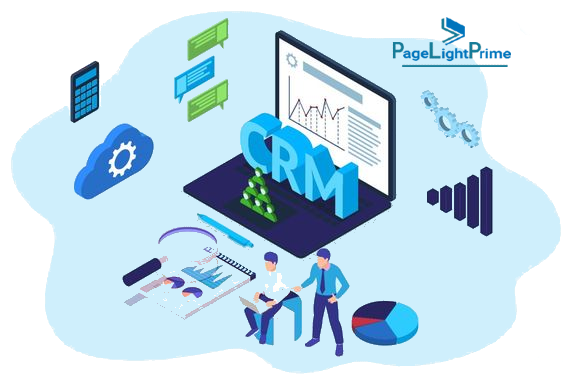Do Law Firms Need CRM
Technology continues to reshape the way organizations operate and engage with their clients and law firms find themselves at a pivotal juncture. Client Relationship Management (CRM) systems, long heralded as indispensable for businesses across various sectors, have recently gained prominence in the legal industry. But do law firms truly need CRM?
Written by Knowledge Team, posted on September 16, 2023

In this blog, we will delve into the pivotal role of CRM in the legal sector, elucidate its multifarious advantages, and elucidate why CRM adoption has become imperative for law firms seeking to thrive in today’s fiercely competitive legal landscape.
Understanding CRM for Law Firms
Customer Relationship Management (CRM) comprises a set of strategies, practices, and technologies that empower organizations to adeptly manage and analyze interactions with clients and potential clients. It revolves around the art of nurturing and sustaining robust client relationships, comprehending their unique needs, and delivering exemplary service. In the context of law firms, Legal CRM Software is bespoke solutions tailored to cater to the distinctive requirements of legal professionals.
The Benefits of CRM for Law Firms

Client Data Management
Foremost among the manifold benefits of CRM for law firms is its capacity to facilitate efficient client data management. Law firms contend with a plethora of clients, each bearing their own set of legal affairs, documents, and communication history. A CRM system enables law firms to centralize and impeccably organize this wealth of information, rendering it effortlessly accessible to all authorized team members. This ensures that client particulars, case histories, and vital documents remain at your fingertips, thereby streamlining day-to-day operations.
Enhanced Communication
Effective communication lies at the heart of the legal profession. CRM systems empower law firms to meticulously track all client interactions, spanning emails and phone calls to meetings and document exchanges. This not only ensures adept management of pending tasks but also guarantees that no critical communication goes astray. It fosters superior collaboration among team members, culminating in more efficient case handling.
Client Segmentation
Law firms frequently cater to a diverse clientele, ranging from corporate clients to individuals with varied legal concerns. CRM software equips law firms to segment their client base based on specific criteria, such as case type, industry, or geographical location. This segmentation lends itself to the tailoring of marketing endeavors, communication, and services to align with the unique prerequisites of distinct client groups.
Business Development
In the current fiercely competitive legal milieu, law firms must actively pursue business development opportunities. CRM systems can be instrumental in helping firms spot potential clients and track the progress of business development initiatives. Through diligent data analysis, law firms can make judicious decisions about where to allocate their time and resources for maximal returns.
Task and Case Management
Managing multiple cases and tasks concurrently can pose a formidable challenge for law firms. CRM systems incorporate built-in task and case management features that empower firms to assign tasks, establish deadlines, and monitor progress. This ensures that no detail escapes attention, deadlines are met, and clients derive satisfaction from the services rendered.
Document Management
Legal cases inevitably generate a deluge of documentation. CRM systems frequently encompass legal document management capabilities, thereby simplifying the storage, organization, and retrieval of critical legal documents. This reduces the risk of misplaced vital information and guarantees the ready availability of documents when required.
Analytics and Reporting
Data constitutes a potent asset for law firms. CRM systems adeptly amass and analyze data pertaining to client interactions, case outcomes, and other pivotal performance indicators. This data-driven approach empowers law firms to discern trends, gauge the effectiveness of marketing campaigns, and make data-driven decisions aimed at enhancing their services and expanding their practice.
Why CRM is Imperative for Law Firms

Enhanced Efficiency
Efficiency serves as the cornerstone of the legal industry, where time is often billed by the hour. CRM systems automate a plethora of administrative tasks, curtailing manual data entry and paperwork. This liberates invaluable time for lawyers and support staff to focus their energies on delivering legal services and expanding the business.
Superior Client Service
Client satisfaction stands as the keystone for law firms. CRM systems aid law firms in offering superlative service by guaranteeing that clients receive prompt responses, real-time case updates, and personalized communication. Contented clients are more likely to refer your firm to others and become enduring patrons themselves.
Competitive Edge
In an arena marked by cutthroat competition, law firms that harness CRM technology gain a competitive edge. They can function with greater efficiency, more effectively target their marketing endeavors, and deliver a superlative level of client service. This positions them to stand out, attracting fresh clients while retaining their existing clientele.
Compliance and Security
The legal profession operates under the purview of stringent regulations and confidentiality mandates. CRM systems often sport robust security features and aid law firms in complying with data protection laws and regulations. This ensures the safeguarding of client information and safeguards the firm against costly legal and regulatory complications.
Scalability
As law firms expand, the management of client relationships and data inevitably grows more complex. CRM systems possess the inherent trait of scalability, meaning they can grow in tandem with your firm. Whether you are a solo practitioner or part of a sprawling law firm, CRM can adapt to your exigencies and underpin your expansion.
Client Retention
Client retention bears equal weight to client acquisition. CRM systems support law firms in staying connected with former clients, monitoring their evolving needs, and reminding them of legal services when circumstances demand. This amplifies the odds of recurrent business and referrals.
Client Intake
Efficient client intake is a pivotal component of a law firm’s operations, and CRM systems play a significant role in enhancing this process. When new clients approach a law firm seeking legal assistance, the initial interactions and data collection are crucial. A CRM system streamlines client intake in the following ways:

Data Gathering
CRM systems enable law firms to collect detailed information from prospective clients swiftly and accurately. This includes personal details, legal issues, contact information, and more. This organized data forms the foundation for establishing strong client relationships.
Conflict Checking
Before taking on a new client, law firms must perform conflict checks to ensure they don’t have any conflicts of interest that could compromise their ability to represent the client. CRM systems can automate this process, quickly identifying potential conflicts and helping firms make informed decisions.
Automated Workflows
CRM systems can create automated workflows for client intake, guiding staff through the necessary steps and ensuring that critical information is not overlooked. This reduces the chances of errors and inefficiencies during the onboarding process.
Communication Tracking
During client intake, numerous communications occur, including emails, phone calls, and in-person meetings. CRM systems enable law firms to track and record these interactions, ensuring that all client communications are logged and easily accessible when needed.
By incorporating law firm client intake software into the CRM system, law firms can ensure a smooth and well-documented onboarding process. This not only enhances efficiency but also contributes to the overall client experience. Clients appreciate law firms that demonstrate professionalism and organization from the very beginning, setting the stage for a positive, long-term relationship.
Conclusion
In the rapid-paced environs of contemporary law practice, adaptability proves imperative for survival. CRM systems have firmly entrenched themselves as an indispensable tool for the adept management of client relationships, the enhancement of operational efficiency, and the cultivation of business growth. While the initial investment in CRM software and training might appear daunting, the long-term benefits far outstrip the costs. By embracing CRM technology, law firms can seamlessly streamline their operations, elevate client service, and position themselves for enduring success in the ever-shifting legal terrain. Thus, the response to the question, “Do law firms need CRM?” resounds with a resounding affirmative.
